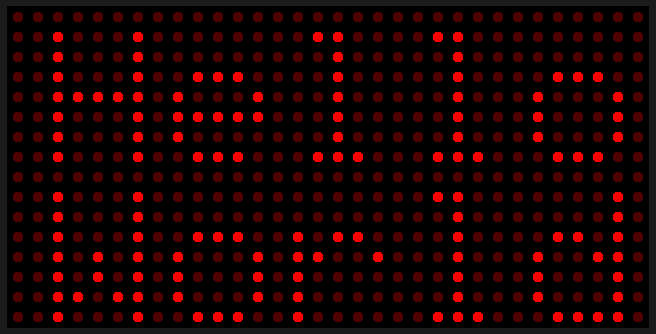A p5js implementation of the DMD library used for the Arduino platform.
Function names and algorithm is a direct copy from the Freetronics team repo https://github.com/freetronics/DMD.
ME: It came about to see if I can mimic a 32x16 monochrome LED matrix display within a browser. YOU: Well duh, of course you can ya dummy. YOU: But why p5js? ME:Well....oh look, that dog has a puffy tail!

So, I started with dot-matrix.html to come up with a proof of concept using JavaScript embedded into HTML - all with the help of using ChatGPT. I ran into a problem where the characters will be displayed as they reside in memory. My attempts to have them rotated failed 😖.

Remembering that I have used a DMD Arduino library, I took the code an pumped it into ChatGPT to have it parse C++ to JavaScript. It wasn't a smooth process, and it did require me to put my thinking cap on now and then. But all-in-all, I was able to for the most part get the library to work 🥳.

- Improve performance - anymore than 1 panel, loading times increase.
- Move this to use Node.
- Add support to split out the DMD class into it's own files.
- Add support for more fonts, again, split out to it's own files.
- Add support so you can add your own animations.
- Add support to enter text to have it either static, scroll or other animations
KNOWN ISSUES:
- As you add more displays, the slower the page loads by an order of magnitude; so, some optimization will need to be done.
- As you add more displays down, either the
bDMDScreenRAMgets corrupt and anomalies present themselves.